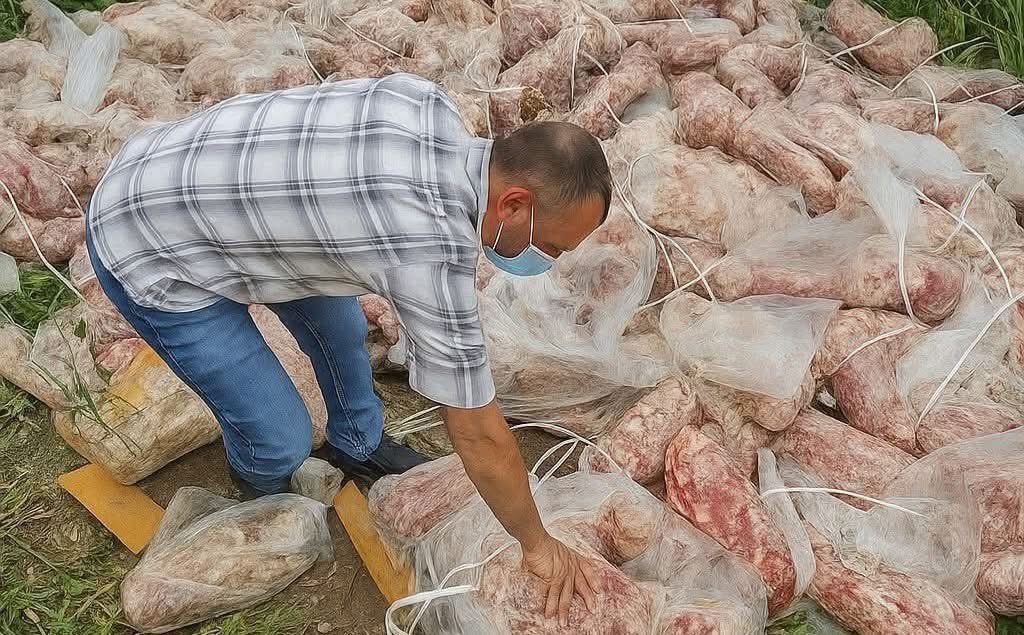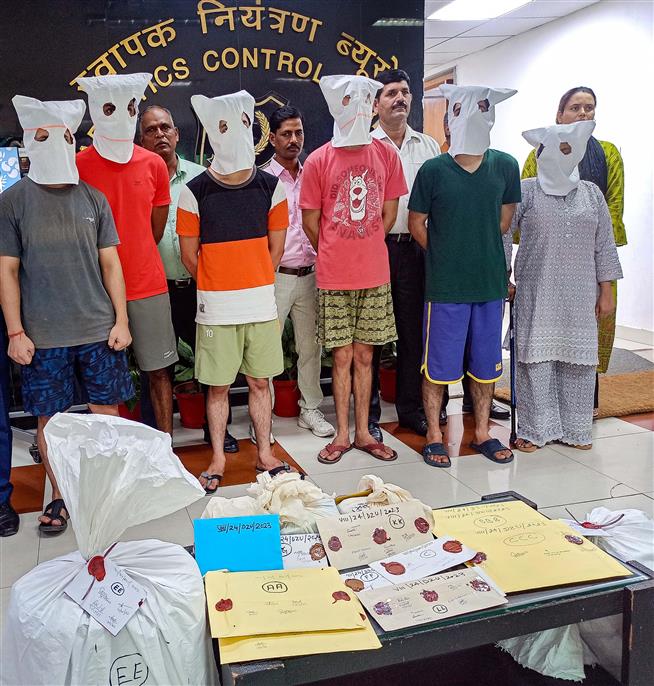The Breaking of a Scandal: Kashmir’s Food Nightmare
By: Javid Amin | 19 Aug 2025
Fifteen days after the first raids, Kashmir remains in shock. What initially looked like a routine food safety operation has snowballed into one of the biggest food scandals in the region’s history.
Authorities uncovered a sprawling nexus of illegal slaughter units, unlicensed cold storages, and chemical suppliers that locals now call the “Meat Mafia.”
At the heart of it: 13 tonnes of chemically treated, decomposed meat seized from units in Srinagar, Pulwama, and Ganderbal. The findings shook the Valley to its core.
The Poisoned Plate: Chemicals in Kashmiri Kitchens
Laboratory reports revealed a horrifying cocktail:
-
Formalin – a chemical used to preserve dead bodies.
-
Hydrogen Peroxide – typically a bleaching agent.
-
Textile Dyes – carcinogenic chemicals linked to kidney failure and cancers.
Instead of feeding people, these were slow poisons served on plates.
The malpractice wasn’t accidental. Investigators found:
-
Kebabs dipped in dyes to make them look fresher.
-
Carcasses dumped in the Jhelum River before being recycled into the food chain.
-
Adulterated mince sold to small eateries at throwaway prices.
This was a deliberate poisoning of Kashmir’s culinary heritage, not just negligence.
A Cultural Betrayal: Wazwan Under Attack
For Kashmiris, food is not just sustenance—it is identity. The Wazwan, a grand 36-dish mutton feast, sits at the heart of Kashmiri weddings and celebrations.
But the scandal revealed that even this sacred tradition had been desecrated.
-
Ristas (meatballs in red gravy) and seekh kebabs were allegedly prepared using chemically treated meat.
-
Vendors lured customers with cheap prices, masking the toxic bargain.
For many, it felt like a cultural betrayal—as if someone had poisoned the Valley’s collective memory.
Economic Fallout: The Market Collapsing Like a House of Cards
The shockwaves extended beyond kitchens. Kashmir’s entire food economy is collapsing like a pack of cards:
-
Restaurants deserted: Business dropped by up to 80%, forcing some eateries to consider shutdown.
-
Workers in crisis: From chefs to waiters, thousands face unemployment.
-
Weddings disrupted: Families are cancelling traditional wazwan caterings, switching to vegetarian menus.
-
Street vendors bankrupt: Small kebab stalls—once bustling every evening—now stand empty.
But the most devastating collapse has been in the packaged and processed food industry:
-
Cold storage units shut down after raids exposed unhygienic and illegal operations.
-
Packaged meat factories frozen as suppliers scramble to prove compliance.
-
Frozen food sales plummet, with public trust evaporating overnight.
Distributors say the industry has come to a grinding halt, with shelves of frozen kebabs, sausages, and meat patties lying untouched. One dealer remarked: “It’s worse than COVID for us. At least then, people stocked food. Now, nobody dares to touch packaged meat.”
The Public Health Time Bomb
Doctors warn that the scandal is not just about food—it is about lives at stake.
-
Short-term effects: Food poisoning, vomiting, diarrhea, acute gastroenteritis.
-
Long-term risks: Kidney and liver toxicity, hormonal imbalances, infertility, and even early puberty in children due to chemical exposure.
-
A Silent Epidemic: One SMHS Hospital doctor described it as “a slow-motion public health disaster.”
With thousands potentially exposed over months, Kashmir faces a health crisis that could last years.
Systemic Rot: Governance on Trial
The scandal is not just about criminals—it’s about a system that allowed them to thrive.
Revelations include:
-
Illegal units in textile estates—industrial zones turned into slaughterhouses.
-
Lack of cold chain regulation—expired meat cycled back into circulation.
-
Zoning violations ignored—factories operating in residential areas.
-
Sunshine Foods Exposé—the epicenter of the scandal, storing 1,200 kg of decaying meat illegally.
This wasn’t just greed—it was governance failure.
Consumer Trust in Shambles
Perhaps the worst casualty is trust. Kashmiris, once proud of their food culture, are now suspicious of every plate served.
-
Families have stopped eating out altogether.
-
Shoppers avoid frozen and packaged foods.
-
Even local butchers face skepticism, with customers demanding live slaughter before purchase.
Trust, once broken, takes years to rebuild.
What Next? Rebuilding from Ruins
The scandal leaves behind tough questions:
-
Can Kashmir’s food industry rebuild its reputation?
-
Will the government tighten food safety laws or simply wait for outrage to fade?
-
Will courts hold the “Meat Mafia” accountable—or will they slip away like past offenders?
Experts suggest urgent steps:
-
Strict licensing and monitoring of slaughter units.
-
Independent audits of cold storage and packaged food companies.
-
Consumer awareness campaigns to restore trust.
-
Stringent punishments to make an example out of offenders.
Bottom-Line: Rotten Truth, Urgent Lessons
The Meat Mafia scandal is more than a crime story—it is a betrayal of culture, health, and trust. It has shaken Kashmir’s identity, economy, and confidence in governance.
As the Valley grapples with its rotten truth, one thing is clear: this crisis cannot be allowed to fade into silence. For Kashmiris, the fight for safe food is now as much about survival as it is about tradition.



